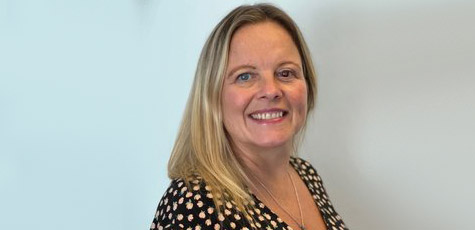Kay joins Chamber in membership and marketing role
Work starts onsite at Leeds Beckett University city campus building
Shawbrook increases facility for York-based One Stop Finance
Digital double act simplifies procurement on projects worth billions
A digital double act is working to simplify procurement around built environment projects worth billions of pounds and deliver an equally impressive return in social value.
The partnership between Hull-based businesses The 55 Group and 43 Clicks North is also geared to driving the development of digital skills in their home city and helping other employers use technology to flex their marketing muscles. The 55 Group operates frameworks through its Pagabo brand to match public and private sector clients with suppliers for built environment projects ranging from demolition through to major works and civils and infrastructure. Contract values start from around £50,000 and rise to £50m or more and, with its nationwide reach, Pagabo has pulled in completed projects worth a total of more than £4bn. Pagabo’s sister brand, Loop, uses software to forecast, monitor and evaluate the entire life cycle of any project and has enabled a social value return from projects in excess of £26bn. Other brands in the group, which employs 88 people, include risk management and compliance software company Sypro and digital-first training platform Tequ. Sam Burton, head of commercial marketing at The 55 Group, said: “Our mission is to use technology and innovative thinking to support a better, faster, and greener approach within our core markets. “Our platforms support an ecosystem that allows the world to evaluate, procure, manage and learn in a more sustainable way. From compliant procurement of suitable suppliers through to high-quality social value reporting, it’s an end-to-end process helping clients safely, securely and efficiently complete their important projects.” “We tried digital marketing before and we felt 43 Clicks North would give us greater added value, and we have really seen that in the last few months. They have out-performed where we thought we would be and it’s justified our decision to change. “It’s not that we started from nothing but they have kicked on even further in terms of enquiries through our digital channels. We could have carried on as we were and we would have been fine, but we made a business decision to improve and this has been a step change. “We challenged 43 Clicks North to see what they could do and they have risen to the challenge, including working with our team to help us develop our knowledge.” The value of Pagabo projects currently in procurement is nearly £500m and includes a £90m academy services framework launched in July and a £1bn refit and refurbishment framework which went live in May.Government acts on creation of his’n’hers toilets in new builds or refurbs
Businesses are offered free advice about how to cut energy bills
Whether it’s fitting a low-carbon heat pump, generating energy with solar panels, or reducing the emissions from shipping goods, the new support will ensure businesses can drive towards net zero.
The new UK Business Climate Hub serves as a one-stop-shop for businesses who have yet to start making changes, as well as those who are already taking action to reduce emissions but want to take things to the next level. As well as helping bosses measure and report on their emissions, the site provides advice and support on an array of things, including:- switching employee modes of transport and paying less for company EVs
- getting business grants, green loans and financing for a retrofit
- getting an air source heat pump
- generating green energy with a wind turbine and selling it back to the grid
- reducing emissions from farming and land use
- buying credible carbon offsets
- getting low-carbon product labels and certifications
- reducing waste and recycling more
“In addition to helping small firms become more energy and resource efficient, the hub also has the opportunity to empower small firms to take ambitious steps towards net zero, ultimately ensuring that they also benefit from the economic opportunities created in a net zero economy.”












